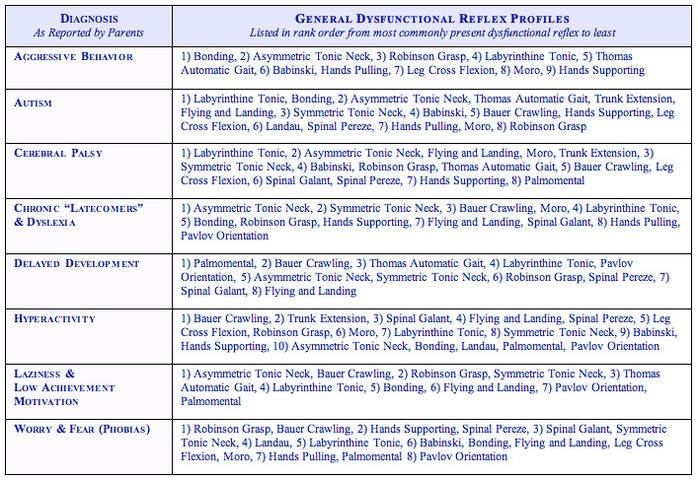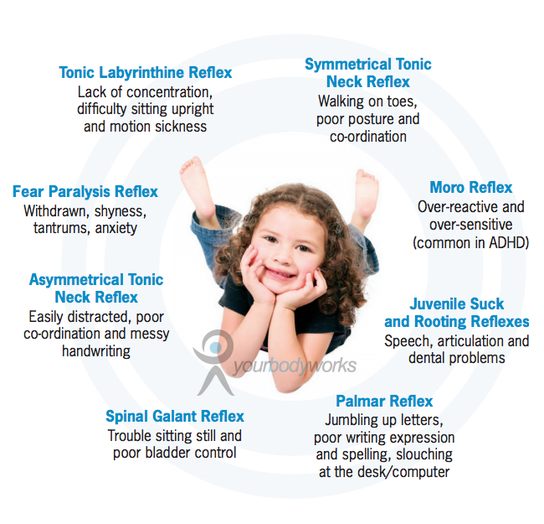Questions to understand how reflexes effect the daily life?
- Does your person have difficulty with their coordination? (gross motor skills)
- Is getting dressed a bigger process than it needs to be? (daily life skills)
- Is it difficult to manipulate scissors, or difficulty with their writing? (fine motor skills)
- Can you say the person's name, but they do not “hear” you? (auditory processing)
- Is it difficult for them to sit in their chair at school or home? (postural control)
- Do they have difficulty with toileting?
- Are they prone to emotional outbursts? (emotional maturity)
- Do they chew on non edible objects? drooling? choking? food pocketing? (oral-motor skills)
- Does the person walk on their toes? (sensory processing)
- Difficulty with transitions? ( separation anxiety/ bonding issues)
- Do they have trouble going to sleep or staying asleep? (high stress hormones)
- Do they show a strong attachment to a caregiver and have difficulty with separation?
- Was there a delay in their motor milestones?ex: crawling, sitting, walking, talking?
- Difficult birthing process? including C-section
- Does the person tend to use too much strength (too tight) or be “floppy” with not enough strength?
Reflex Integration is a therapy that addresses these and many other issues. The Masgutova Method originated in Poland, but it is time that the children in the Southeast are able to gain access to this therapy. Contact me for more information and to set up an evaluation.
Proudly powered by Weebly


